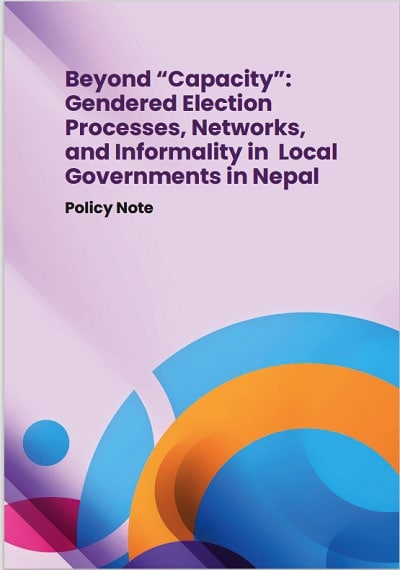Beyond “Capacity”: Gendered Election Processes, Networks, and Informality in Local Governments in Nepal
While many donors and much state attention have focused on building the skills and capacities of elected women to make them effective in their formal political roles, recent research has shown the need to look beyond formal institutions and processes to understand the informal rules that affect the ability of women elected representatives to fulfill their duties. This paper focuses on two distinct but interrelated inquiries. The first seeks to understand the over-representation of men in local political offices by examining recruitment and selection by political parties. The second examines how informality shapes formal institutions. With respect to political selection, studies on the absence of women in politics in Nepal, especially in politically influential posts, have highlighted societal values discriminating against women, lack of internal party democracy, the dominance of men in key internal positions, and the high cost of electoral campaigns. This paper will be helpful to those who understand the macro-level problem sets, but continue to implement programs that remain unlinked to political processes that pose barriers to entry and hurdles to fulfilling formal political roles and duties.

